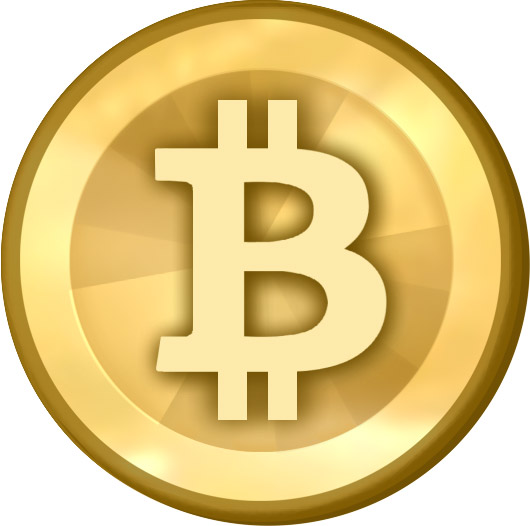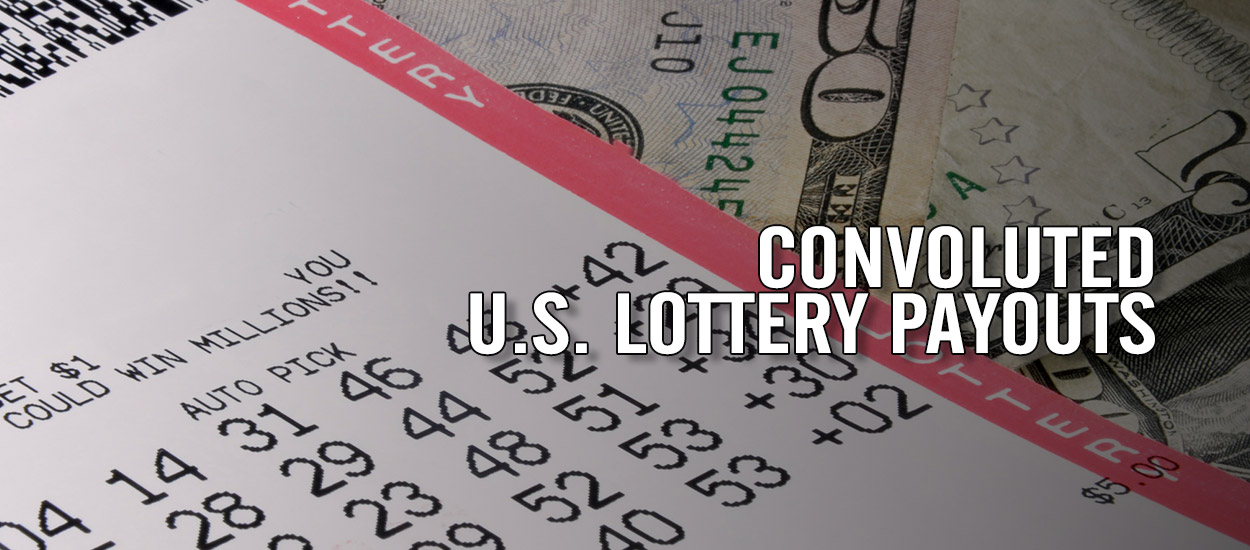Last weekend the Bitcoin Alliance of Canada hosted the first bitcoin expo in Toronto and while there were no easily recognizable names like Bill Gates or Warren Buffet in attendance, the conference was filled with individuals who are well versed and connected with bitcoin. Erik Voorhees who has generally been the spokesperson for the virtual currency in the United States was unable to attend so it was left to Anthony Di Iorio, the executive director of the Bitcoin Alliance of Canada and the event organizer, Andreas Antonopoulos who is an author and expert on bitcoins and Stuart Hoegner who is an international gaming lawyer as the front people for the event. The expo (which was actually more of a conference than an exposition) was held in the south portion of the Toronto Convention Centre and was attended by about 800 individuals. The majority of the sessions were held in two rooms although there was a media room and a VIP Fireplace lounge (although I didn't see any fireplace) plus there was a small exposition with around 30 exhibitors in the back. The expo featured the likes of Bitcoin Decentral (a Toronto based bitcoin members club) showing off their latest bitcoin ABM; Etherum which apparently is a programming platform that allows developers to build and publish next generation distributed applications; Prepaid Bitcoin; and CA Virtex (a Toronto based bitcoin payment processor) which were handing out bitcoin debit cards to any Canadians with an interest in a prepaid bitcoin ATM card. It should be noted that I acquired one of these debit cards although I have yet to activate it or buy bitcoins to load onto the card but if it does indeed work it could be a major step in bitcoin acceptance. I'll discuss the debit cards below. The bitcoin expo had a distinct Canada focus although the information learned from the conference can be applied worldwide since bitcoins don't belong to any country.
My reason for accepting a media pass to attend the conference was to learn more about the crypto currency and to inform gamblers. My goal was also to help offshore gambling merchants decide whether it is feasible to incorporate bitcoins into their payment platform. While I've written on numerous topics for OSGA, the articles on bitcoin have generated a particular amount of interest among readers as is evidenced by the amount of emails requesting clarification and more information following the release of those articles.
I decided to attend three sessions at the conference. They included one on legal issues surrounding bitcoin, one on the future of bitcoin and one on freedom of speech. The sessions talked a lot about block chains, data mining pools and crypto verification but the specifics about how bitcoins are mined or verified were of little interest to me and I'm sure to readers of OSGA. The vast majority of people could really care less how an American or Canadian dollar are created, they simply want to know what they can buy with it, how they can pay bills with it, what limitations there are on using it and how they can legally generate more of it. And the same holds true with bitcoins. For that reason I'll limit the conversation about bitcoins to the uses of the crypto currency and not on the manufacture of them.
 The most intriguing session by far and away was the session titled "the future of bitcoin" where three very well spoken individuals – venture capitalist David Johnston, Etherum founder and CEO Charles Hoskinson and Antonopoulos discussed why they believe bitcoin will be a complement to currencies like the U.S. dollar or the Euro and why in their opinion bitcoin or other virtual currencies could actually replace traditional currencies in many parts of the world. Antonopoulos suggested that it was unethical and abhorrent that many people in third world countries that don't have bank accounts are being charged as much of 20% of their funds to get access to money that is coming to them. With bitcoins the fee is only 2.5% regardless of where the person lives and one doesn't need a bank account (although they do need a computer and a virtual wallet). In fact the phrase "vampire capitalism" was used to describe the bankers who take advantage of the poorest people in the world with this practice. All 3 admitted that there have been issues with security and fraud with bitcoin but they said it's still better than with fiat currency (the main currency of a country). One of the speakers pointed to the recent bankruptcy of Mt. Gox (after the site had hundreds of thousands of bitcoins stolen from them) but they suggested that while Mt. Gox was an unfortunate happenstance, traditional banks have far more instances of fraud and identity theft than bitcoin and bankers do everything in their power to maximize fees and "steal" banking customers' funds. As for fiat currency, Antonopoulos suggested that we are in a currency crisis today and it is far more dangerous and risky to hold U.S. dollars than it is bitcoins and people in places like Ukraine and Zimbabwe have no way of knowing whether the currency they are being paid in will be any good in the future. To be honest the hatred of traditional bankers and fiat currency became evident throughout the conference and one attendee even told me that he has taken every penny out of his bank and now has 3/4 of his liquid assets in bitcoin wallets and the rest in a safe in his room. He says when he gets paid from his work he immediately converts his paycheck to bitcoin with the exception of the amount he needs in Canadian dollars to purchase groceries, food, gas and the day to day expenses. Of course a lot of people in the world today operate that way with gold as well. All the speakers admitted that until bitcoin is accepted for all purchases in will never reach its maximum potential, but at the same time there are more and more merchants accepting the virtual currency. In fact di Iorio told me that he purchases plane tickets, computer equipment and many of his needs with bitcoin and gets the full current price of a bitcoin when doing so.
The most intriguing session by far and away was the session titled "the future of bitcoin" where three very well spoken individuals – venture capitalist David Johnston, Etherum founder and CEO Charles Hoskinson and Antonopoulos discussed why they believe bitcoin will be a complement to currencies like the U.S. dollar or the Euro and why in their opinion bitcoin or other virtual currencies could actually replace traditional currencies in many parts of the world. Antonopoulos suggested that it was unethical and abhorrent that many people in third world countries that don't have bank accounts are being charged as much of 20% of their funds to get access to money that is coming to them. With bitcoins the fee is only 2.5% regardless of where the person lives and one doesn't need a bank account (although they do need a computer and a virtual wallet). In fact the phrase "vampire capitalism" was used to describe the bankers who take advantage of the poorest people in the world with this practice. All 3 admitted that there have been issues with security and fraud with bitcoin but they said it's still better than with fiat currency (the main currency of a country). One of the speakers pointed to the recent bankruptcy of Mt. Gox (after the site had hundreds of thousands of bitcoins stolen from them) but they suggested that while Mt. Gox was an unfortunate happenstance, traditional banks have far more instances of fraud and identity theft than bitcoin and bankers do everything in their power to maximize fees and "steal" banking customers' funds. As for fiat currency, Antonopoulos suggested that we are in a currency crisis today and it is far more dangerous and risky to hold U.S. dollars than it is bitcoins and people in places like Ukraine and Zimbabwe have no way of knowing whether the currency they are being paid in will be any good in the future. To be honest the hatred of traditional bankers and fiat currency became evident throughout the conference and one attendee even told me that he has taken every penny out of his bank and now has 3/4 of his liquid assets in bitcoin wallets and the rest in a safe in his room. He says when he gets paid from his work he immediately converts his paycheck to bitcoin with the exception of the amount he needs in Canadian dollars to purchase groceries, food, gas and the day to day expenses. Of course a lot of people in the world today operate that way with gold as well. All the speakers admitted that until bitcoin is accepted for all purchases in will never reach its maximum potential, but at the same time there are more and more merchants accepting the virtual currency. In fact di Iorio told me that he purchases plane tickets, computer equipment and many of his needs with bitcoin and gets the full current price of a bitcoin when doing so.
The speakers also discussed other forms of currency and while some believe that other forms of virtual currency are pretenders, David Johnson who is also the CEO of Mastercoin not surprisingly disagreed and suggested there's a place for all of them. In fact bitcoin is not recognized in much of the world but other forms of virtual currency are. In Norway, for example, the crypto currency of choice is not bitcoin but rather dogecoin and that virtual currency is actually being promoted throughout Europe. Introduced only a few months ago dogecoin has been put in fast release and over 65 billion of these virtual coins have been mined (bitcoin is limited to 21 million coins). Dogecoin is also looking at North America and is sponsoring a NASCAR in next week's Sprint Cup race at Talladega. Litecoin is also becoming more popular and by all accounts new crypto currencies are being introduced all the time. It's for that reason that it's so hard to identify what the true value of a bitcoin should be. Some at the conference told me that they believed it should be $10,000 while a skeptic told me it should be about 50 cents. And there have been articles written in mainstream media that suggest the true value of a bitcoin is USD$1 million! One thing that is certain is that all the crypto currencies are not really currencies but rather commodities and Etherum which put out bitcoin magazine addressed this in one of their faq articles.
"The value of bitcoin is purely subjective and depends on each individual valuation. Of course the valuations may be aggregated and averaged, but they all stand on a shaky ground of each individual's decision to buy or abstain from buying. The same applies to dollars, gold, oil and groceries."
The issue of freedom and anonymity also came up quite a bit in all the sessions and obviously that is a topic that is extremely important to gamblers. One of the real appeals of bitcoin to gamblers is that theoretically their transactions are anonymous and hence they can't be tracked down by the feds or IRS, which is always a concern when betting with U.S. dollars. But speakers were quick to point out that bitcoin isn't anonymous but rather pseudonymous. All transactions and addresses are visible to everyone but that address is just a random number not assigned to any particular user. I was told that the bitcoin community somehow approves the transactions which I found very bizarre although I was assured that didn't mean that everyone that has a bitcoin has to be texted to confirm they are ok with a transaction. Moreover every transaction is final and not reversible. But there are clearly loopholes in this "pseudonymity" which was evidenced when the owners of Silk Road were caught and arrested by the DoJ. It was also evidenced when a payment processor for bitcoins was shut down and their bitcoins were seized by the feds. Not surprisingly that has many in the gambling industry believing that bets are no more anonymous when using bitcoin than they are when using any other currency and hence there is little advantage to using bitcoin if anonymity is the reason for using the crypto currency as a payment platform. That said, it was announced in 2 of the sessions I attended that plans are now well underway to create a new version of Silk Road that is absolutely untraceable and would be impossible to shut down. In fact bitcoin programmers are currently devising many new methods to ensure that no single person or entity can be identified when using bitcoins. Obviously if that could ever happen it would be a monumental development for the offshore gaming industry. If bettors could place bets without being identified in any shape or form (i.e. no one knows where they live), if transactions completely avoided the traditional banking system and if gambling sites could be assured that no payments could ever be challenged or reversed, then the industry could go back to the glory days of the late 1990s and early 2000s where all sites were open to everyone, gamblers had oodles of choice where to play and Uncle Sam's opinion on gambling was irrelevant. But seeing is believing and currently it's hard to envision a site being created that is absolutely untraceable and anonymity is assured.
One of the big disincentives for online gambling operators and bettors currently is the fact that they still prefer to deal in real cash for day to day transactions so the only way they would be willing to adopt bitcoins as a payment method is if the two currencies were interchangeable. I always believed this was a fantasy until I met with the managers of CA Virtex in the expo hall. They were handing out prepaid bitcoin debit cards to anyone who was interested so I agreed to take one. According to one of their account executives the way it works is that you deposit bitcoins to the card, it is converted to the local currency and you withdraw funds in that currency at an ATM. So in Canada if you load say 2 bitcoins onto your debit card and the current value is CAD$500 then you can go to any bank machine in Canada that accepts Interac (which is all of them) and withdraw $1,000 in cash. In Canada the debit card is issued by DC Bank although they have affiliates in the UK, Australia and Spain as well. It doesn't appear the card will work at a U.S. bank currently although there are companies that are looking to initiate U.S. prepaid bitcoin debit cards and likely credit cards too. There is also talk about getting these cards on the worldwide banking networks like PLUS as well. Needless to say if this is viable then it would be a major boon to all offshore gambling sites. As it stands now, there is really only one way a U.S. gambler can wager offshore today. The gambler will send, say $500 to offshoregamblingsite.com by check, Western Union or possibly a bank wire and if he wins a 3/1 bet he would have to withdraw the $1,500 in winnings via check or other methods with a hefty fee and delay attached to it.
Here is how it could be done with bitcoin.
The gambler would buy 1 bitcoin at the current value of $500 and send it to the bitcoin wallet of offshoregamblingsite.com. The gambler wins a 3/1 bet and is sent 3 bitcoins to his bitcoin wallet. The bettor loads those 3 bitcoins on the prepaid debit card, goes to a bank machine and withdraws the $1,500 in cash. What a breakthrough – the ability to use bitcoins and fiat currency interchangeably. Obviously, if the transactions are long term (i.e. betting on a World Series champion) the value of the bitcoins could fluctuate wildly affecting the amount of the win although that is a similar risk, though less volatile, with any currency. And of course there is always a way to hedge to limit the affect of the fluctuations.
The bitcoin expo was interesting and informative and helped bitcoin novices like me understand more about the possible benefits of using the crypto currency in the future. There are many benefits of bitcoin but also limitations that even the speakers acknowledged. But the question for OSGA readers is whether bitcoin is a viable payment method for offshore betting. The answer is maybe. If the prepaid debit card proves to be viable and if offshore sportsbooks can trust their bitcoin wallets to be safe and secure then it is indeed a possible solution. That said there are many questions that need to be answered. I have sent those on to relevant parties and will post them in a new article once I receive satisfactory responses. One thing is for certain, bitcoin does provide some reason for renewed optimism for U.S. gamblers who want to wager offshore.
Contact Hartley via email at hartley[at]osga[dot]com.
Read insights from Hartley Henderson every week here at OSGA and check out Hartley's RUMOR MILL!







































